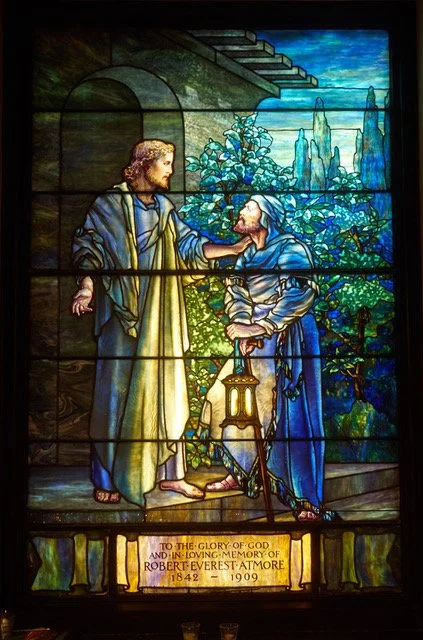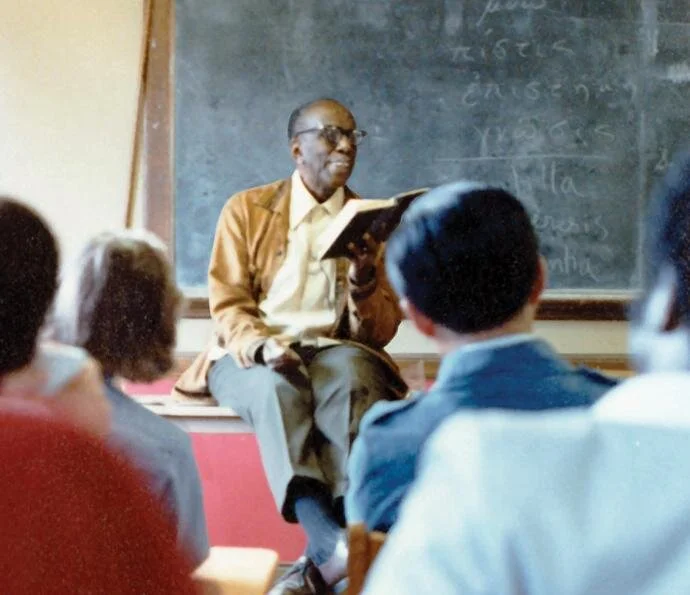On the Spiritual Life after the Darkness of Covid-19, Part Three: on Ministry
The spiritual life is the life of the Spirit of Christ in us, a life that sets us free to be strong while weak, to be free while captive, to be joyful while in pain, to be rich while poor, to be on the downward way of salvation while living in the midst of an upwardly mobile society.
—Henri Nouwen, The Selfless Way of Christ, p. 44
I. Since I began this four-part series (see Part 1 here), I have come to believe that Nouwen’s last two rubrics, Healing and Ministry are integrally connected and that ministry ought to be addressed as foundational, especially for healing, so I have flipped the original order. Healing will come next week.
II. This change of order was triggered by two important and related recent experiences for us all: The first is the emergence of the dangerous Covid-19 Delta variant, the source of 80% of new Covid-19 cases in the United States. There are numerous political and cultural squabbles over vaccinations, about masks in schools and other new/old restrictions, a flood of misinformation and disinformation, and, of course, the enduring issue of who’s right: scientists, government agencies or individuals and groups with their own points of view. The second reason for taking up “ministry” here is that we now seem to have entered another period of powerlessness, a period when increasing numbers of people are infected by the Delta variant, a large number of whom are victims of their own resistance, anger and confusion, and, as a consequence, have ended up in a very dark and vulnerable place.
III. In a recent “Faith Matters” column in the Christian Century, Samuel Wells acknowledged his sense that “ministry is about encountering people in their powerlessness.” (Christian Century, June 16, 2021, p. 37). I believe Wells is right: ministry is about encountering the powerless and leading them to a place of healing and wholeness. My reordering is the result of seeing ministry as a way to healing AND as a critical component of the spiritual life. But my thinking here is also informed by Nouwen’s notion that “we minister above all with our weakness, a weakness that invites us to receive from those to whom we go.” (Spiritual Journals, p. 163) Here, Nouwen introduces the issue of “relationships” and how relationships among those with whom we connect through mutual ministry can help us encounter our own powerlessness.
IV. My own recent reflections have brought me to a fuller realization of how essential ministry is to the spiritual life. We don’t normally think about this because we don’t distinguish between ministry and being a minister. Mostly, we see a minister as one who serves the church in some formal capacity. But in the last 20 months or so, we have witnessed firsthand how the people of the pandemic have ministered to each other and to those they are serving: Public servants, hospital, critical care and nursing home staff, teachers, restaurant workers, artists, social workers and mental health professionals, religious and laity, and scores of other people who have spent a great deal of time “ministering.” And what an astonishing ministry this has been and continues to be in this new time of the Delta variant.
V. Elizabeth Cady Stanton (1815-1902), who the church celebrated on July 20, said just before her death, “My only regret is that I have not been braver and bolder and truer in the honest conviction of my soul.” But “brave” and “bold” and “true” was how Elizabeth Cady Stanton lived her life, just as all those who “ministered” in the first and most demanding and unsettling phase of Covid-19 have been, and will be, in this very troublesome second phase. This is the “ministry” Nouwen is defining, the “ministry” of an everyday life that lives in the “life of the Spirit of Christ in us,” even when the “ministers” are not aware of God’s presence. (Isn’t this how the Holy Spirit works?) This ministry to which Nouwen believes we are called as Christians, carries with it the living out of the bold, brave, true, and honest conviction of our souls. Now, especially now, the “honest conviction of our souls” may require us to be more outspoken about the unvaccinated and their apparent willingness to harm others as well as themselves. We know that vaccinations save lives, and one element of our ministry now is to remind the unvaccinated of this truth.
VI. Nouwen himself brings us closer to the essence of ministry: “All ministry is caring attentiveness to vulnerable lives and a grateful receiving of the variety of fruits by which they manifest their beauty.” (Lifesigns/Compassion, p. 32). The fundamental premise here is that ministry is an important element of the spiritual life…OUR spiritual life. In fact, Nouwen would argue that we are all called to be ministers, just as we are all called to be healers. Nouwen emphasizes that there is a fundamental integration among the principal elements of the spiritual life, so we need not only to maintain a vital spiritual life in the “here and now,” but recognize that prayer and solitude nourish our calling to “the caring attentiveness” of ministry. We recognize, as well, that our living in God’s presence through our prayer and solitude and the relationship we have with God, is what prepares us for the relationships we develop and nourish, and upon which we depend in doing ministry.
VII. Ministry for us, then, ought to be seen as caring for others as who they are and who we are, even if we often feel powerless to do good. Nouwen might say it this way: doing ministry requires that we care for all those who are in our lives, knowing that to “do ministry” is as much caring for others as it is caring for ourselves.
Amen










